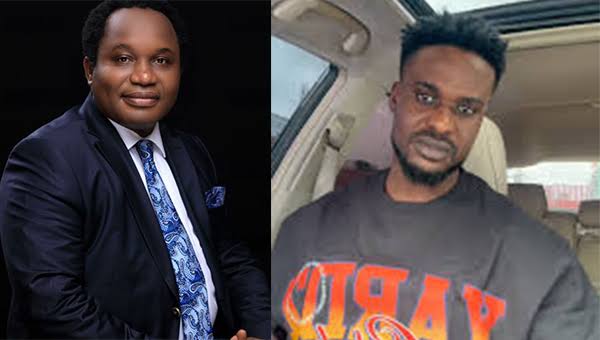Africa
EFCC’s Inaction on PWAN Group: A Case of Negligence or Collusion? Will the Lagos State House of Assembly Act? -By Jeff Okoroafor
If Nigeria’s institutions continue to fail victims of financial fraud, public trust will erode further. The House must launch an immediate investigation, and the EFCC must either prove its integrity by acting on Iguma’s petitions or explain why it has refused to do so.

The Economic and Financial Crimes Commission (EFCC) was established to combat financial crimes, protect investors, and uphold the rule of law in Nigeria. Yet, its refusal to investigate PWAN Group—a real estate company accused of defrauding thousands of Nigerians—despite receiving 130 petitions from social media activist Scott Iguma raises disturbing questions. Is this a case of institutional negligence, or is there a more sinister collusion at play? Now that the House of Representatives has received a petition to probe the EFCC’s inaction and the circumstances surrounding Iguma’s arrest, will justice finally be served?
The PWAN Group Controversy: A Recap
PWAN Group, a real estate company operating under various subsidiaries (PWAN Homes, PWAN Plus, etc.), has been accused of running a Ponzi-like scheme, luring investors with unrealistic returns on property investments. Victims allege that after collecting millions of naira from unsuspecting Nigerians, the company failed to deliver on its promises, leaving many financially ruined.
EFCC’s Inaction: Negligence or Collusion?
The EFCC’s reluctance to investigate PWAN Group raises serious concerns:
-
Selective Enforcement?
The EFCC has a history of swiftly prosecuting cases, especially when under public or political pressure. Why then has it ignored 130 petitions against PWAN? Does the company enjoy political protection, or are there influential figures within or outside the EFCC shielding it from scrutiny? -
Whistleblower Intimidation
Instead of investigating PWAN, Scott Iguma was reportedly arrested and detained by the police under questionable circumstances. Was this a coordinated effort to silence him? If the EFCC had acted on his petitions, would he have faced such persecution? -
Possible Regulatory Capture
There are growing suspicions that PWAN may have infiltrated key regulatory and law enforcement agencies, ensuring its operations remain unchecked. The EFCC’s silence only fuels these suspicions.
The Lagos State House of Assembly’s Role: Will They Act?
The Lagos State House of Assembly has now been petitioned to investigate:
-
The EFCC’s failure to act on Iguma’s petitions.
-
The circumstances surrounding Iguma’s arrest and detention.
-
Allegations of fraud and money laundering against PWAN Group.
This is a critical moment for Nigeria’s anti-corruption framework. If the House fails to act, it will send a dangerous message that financial crimes can thrive with impunity if the perpetrators are well-connected.
Conclusion: A Test of Nigeria’s Anti-Corruption Resolve
The EFCC’s inaction in the face of overwhelming evidence against PWAN Group is unacceptable. Nigerians deserve answers:
-
Is the EFCC compromised?
-
Who is protecting PWAN Group?
-
Will the House of Representatives uphold justice?
If Nigeria’s institutions continue to fail victims of financial fraud, public trust will erode further. The House must launch an immediate investigation, and the EFCC must either prove its integrity by acting on Iguma’s petitions or explain why it has refused to do so.
The time for accountability is now.

Jeff Okoroafor
Jeff Okoroafor is a social accountability advocate and a political commentator focused on governance, accountability, and social justice in West Africa.

























